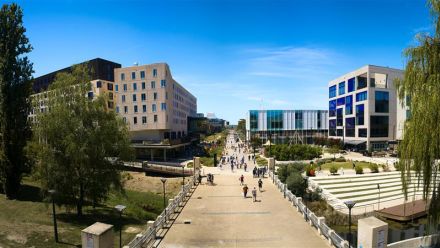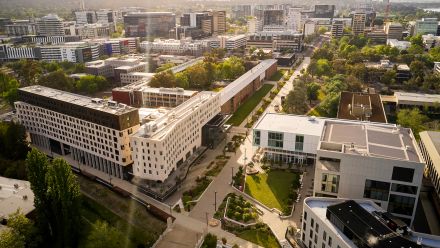Australia could become voice for global vaccine equality
It is time these major pharmaceutical companies put human lives before profit
An expert from The Australian National University (ANU) is urging Australia to support international calls at the World Trade Organization for pharmaceutical giants to not only waive intellectual property protections for the COVID-19 vaccine but teach countries how to replicate the vaccine in the lab.
The call comes as the Delta variant "spreads like wildfire" across the world.
Professor Susan Sell, from the School of Regulation and Global Governance, said the emergence of the Delta strain highlights the importance for all nations, particularly low and middle-income countries, to be able to produce vaccines locally instead of importing them.
"Australia must follow in the footsteps of the US and others by throwing its support behind a waiver on COVID vaccine patents at the World Trade Organization. We know countries like India, South Africa, South Korea and Brazil have the capacity to produce COVID vaccines locally if the major firms allow it," she said.
"Australia has an opportunity to negotiate agreements for a waiver for patent rights, but it's not enough. It should be made mandatory for firms to not only share methods to produce the vaccine, but also send someone into the field to teach hands-on development.
"Vaccines are complicated to produce. It's not like having a recipe where you can go off on your own and make it; you really need to have the chef in the kitchen."
Professor Sell's call to action follows reports of a major gap in the rollout of vaccination programs worldwide as countries face major supply shortages.
"Africa has one of the slowest vaccination rates of any continent because it doesn't have adequate access to the vaccine," Professor Sell said.
"This is a pattern we are also seeing for low-income countries that can't get the vaccine because rich nations have bought more supplies than they need. The hoarders should donate vaccines immediately to low-income countries ravaged by the delta variant."
Professor Sell referred to the situation in Australia as an example of how new variants can quickly spread and the need for firms to not only make their vaccine technology widely available, but to also waive patent rights to produce PPE, therapeutics and ventilators.
"In Australia, the Delta variant has resulted in a new wave of lockdowns across the country," she said.
"We're in a race against these mutant variants. The longer it takes for the world's population to get vaccinated, the more mutations are likely to arise that can render current vaccines ineffective.
"It is time these major pharmaceutical companies put human lives before profit and licence COVID technologies for safe and accelerated production and universal access."
Professor Sell said the Australian Government must also further diversify and expand its vaccine pool to boost chances of quickly protecting against new COVID strains that emerge.
"Johnson & Johnson requires one dose and will speed up immunity, which is imperative to prevent new, resistant virus mutations," she said.
Professor Sell has published research on this issue in Development.


